A frequent criticism of low-fi independent film, when compared to big blockbuster hits, is that nothing happens. On one hand, when people are so used to movies that follow a strict formula with predictable conflicts and intense visuals, obviously they’re going to watch something like Past Lives and be bored by how understated it is. However, when you look past long takes and ambient sound design, you can argue that a million things happen in Past Lives because the story is more about the emotional context of the characters and less about what is physically happening on screen.
Movies that could be considered ‘low-fi’ or minimalist, or fall under the Slow Cinema umbrella, ask the audience to explore the story on a deeper level than what junk-food movies require. They exist to remind us that film is an art form and not just a business.
Slow Cinema is typically defined as a minimalistic cinematic art form that has long, contemplative takes and a heavy focus on aesthetics and atmosphere. It has its roots in earlier cinematic art movements and in works by well known filmmakers such as Andrei Tarkovsky, Ingmar Bergman, and Béla Tarr. Specifically, the length of shots often divides people on their opinions of slow cinema. Some find them to be a beautiful reflection of humanity and to be a breath of fresh air in an industry of 2-second-shots, and others find them pointless or even pretentious and insulting to audiences. I believe there are several films out there that take the idea of slow cinema too literally; They never know when to end the shot and there is no context or potential pay-off for the slow pace. However, filmmakers that use slow cinema effectively know how to correctly balance slow paces and keep viewers invested in what comes next. Slow cinema does not mean that there’s no narrative, it just means that it takes its time and knows when to linger on something beautiful. Slow cinema stops to smell the roses.
As I write about the divisiveness of slow cinema, I’m brought back to several of my screenwriting classes where often the only notes I received were that ‘it needs more’. After a lot of trial and error and adding a lot MORE every single time I was given this note, I started to think that maybe it wasn’t always something I could fix. Sure, when I was a baby-writer I probably needed to learn to add more conflict and tension, but now that I’ve figured out my own writing style, it made me wonder if we’ve been so conditioned to make formulaic blockbuster movies, that’s all people think about when they give feedback. It’s not the fault of anyone in my classes, since the whole point was to get comfortable with Hollywood storytelling conventions, but it made me reevaluate how not every story is one-size-fits-all (and obviously not every story belongs in Hollywood). If my goal is to write a slow-paced movie where nothing happens… then I’m going to ignore notes telling me I need to do otherwise. As for audience members, I feel that we should be more open to films that bend the ideas of rigid storytelling.
Before I get into the list, I would suggest to anyone interested enough to look into the films of the filmmakers I listed above (which I also need to watch more of). Movies like Persona are essentials that I watched while taking film history classes. And if you’re really a nerd for all this, you can read about film aesthetics in the book Sculpting in Time by Andrei Tarkovsky. I was also exposed to this book in my film history classes and I know I should give it the full read someday. I should also say that even though I literally went to film school, my knowledge of film history is very surface level and there are so many foundational films to explore beyond what I’ve briefly mentioned here. I’m not qualified, just passionate.
Due to my own watch history, my following list is largely from the last decade. My criteria for this list are not solely reliant on shot length, but rather 1) something that has left a lasting impression on me, 2) a meditative pace both narratively, visually, and/or sonically, and 3) primarily about emotion and character relationship.
Past Lives (2023) dir. Celine Song
“Nora and Hae Sung, two deeply connected childhood friends, are wrested apart after Nora's family emigrates from South Korea. Twenty years later, they are reunited for one fateful week as they confront notions of love and destiny.”
This movie explores the connected lives of two people at three different points in time. It also explores the idea of how well you really know people who come in and out of your life and whether you know the real version of them or the idealized fantasy version of them. Someone you knew in a past life can now be a total stranger.
Frances Ha (2012) dir. Noah Baumbach
“A New York woman apprentices for a dance company and throws herself headlong into her dreams, even as the possibility of realizing them dwindles.”
Frances Halladay lives in a world where being broke and drifting away from your best friend are your biggest problems. Really, the saddest part of this movie is seeing how Frances isn’t necessarily ready to grow up or doesn’t always feel like an adult while witnessing those around her seemingly grow up with ease. Despite this, Frances shows us that there’s light at the end of the tunnel and a long life to live.
Lost in Translation (2003) dir. Sofia Coppola
“A fading movie star falls for a lonely young woman in Tokyo.”
It’s isolating to feel detached from those you love, and it’s isolating to be alone in a foreign country. The two main characters are experiencing both at the same time and find each other in the midst of their loneliness.
The Worst Person in the World (2021) dir Joachim Trier
“The chronicles of four years in the life of Julie, a young woman who navigates the troubled waters of her love life and struggles to find her career path, leading her to take a realistic look at who she really is.”
A woman struggles with different relationships and how they affect her values and her path in life, which shows us how our different relationships can distort our own view of the self. There are moments of this film that aren’t necessarily slow and, in fact, more experimental but still serve the purpose of exploring the human condition.
C’mon C’mon (2021) dir. Mike Mills
“When his sister asks him to look after her son, a radio journalist embarks on a cross-country trip with his energetic nephew to show him life away from Los Angeles.”
Throughout their trip, Johnny interviews young people on their lives and thoughts on the future while his nephew Jesse is with him. Subsequently, they’re both learning new perspectives on life and growing more comfortable with each other as their trip goes on. The people they learn from, including each other, show that you never stop learning no matter what stage of life you’re in.
20th Century Women (2016) dir. Mike Mills
“In 1979 Santa Barbara, Dorothea is a determined single mother who is raising her son, Jamie. Dorothea enlists the help of two women -- Abbie, a free-spirited punk artist and Julie, a savvy teenager -- to help with Jamie's upbringing.”
This movie is a true testament to the idea that it takes a village to raise a child, and we are just as much a product of our community as we are of our parents. It’s a slice-of-life movie, that also attempts to capture each person’s complete existence on camera.
Showing Up (2022) dir. Kelly Reichardt
“A sculptor preparing to open a new show tries to work amidst the daily dramas of family and friends.”
Kelly Reichardt is well known for her slow style of filmmaking, and this is the first film I’ve seen of hers. To me, this felt like a slow revelation of theme, where I realized that actions that seemed pointless at the time, added up to explain each character’s behavior. This film is about realizing that people show care in different ways and everyone is their own work in progress.
Nomadland (2020) dir. Chloé Zhao
“A woman in her sixties, after losing everything in the Great Recession, embarks on a journey through the American West, living as a van-dwelling modern-day nomad.”
All of the characters that Fern interacts with talk about how they’ve had trouble in life, but now they’ve formed their own new communities and all they want to do is live freely in the great outdoors. Home is not a place for them, it is all around and within themselves. Nomadland is a message to everyone to live life fearlessly and beautifully.
God’s Own Country (2017) dir. Francis Lee
“Spring. Yorkshire. Young farmer Johnny Saxby numbs his daily frustrations with binge drinking and casual sex, until the arrival of a Romanian migrant worker for lambing season ignites an intense relationship that sets Johnny on a new path.”
I think this movie is a great example of a story that’s slow-paced, yet has a very clear arc for the main character. By the end of the film, he is not the same man we saw at the beginning, and it shows that if he hadn’t fallen in love and opened himself up then he probably would have stayed frustrated with the world for the rest of his life. We become better people because of those we choose to surround ourselves with.
The Miseducation of Cameron Post (2018) dir. Desiree Akhavan
“In 1993, a teenage girl is forced into a gay conversion therapy center by her conservative guardians.”
From day one, Cameron finds herself in conflict with her own identity and those around her. She makes friends with other kids who reject the teachings of the center, yet struggles with the kids who truly believe God will forgive them and help them change their ways.
Causeway (2022) dir. Lila Neugebauer
“A US soldier suffers a traumatic brain injury while fighting in Afghanistan and struggles to adjust to life back home.”
I feel that this movie, where a man and woman bond over their respective traumatic experiences, is severely underrated. It should honestly be required viewing and I wish it had been talked about more.
A causeway is a raised road or track across a low or wet ground. While it’s not obvious at the beginning of the film, there is a tangible meaning for why it’s called Causeway by the end of the movie. However, despite its literal meanings, I feel that it’s also somewhat symbolic. I used to drive across a causeway frequently when I lived in Door County, which cut across Kangaroo Lake. It was surrounded by water and tall grasses on either side, and occasionally, people would set up chairs right on the edge and go fishing. When you drive across the low road, sometimes it feels that you’re caught in limbo, trying to get to the other side before the water rises up and swallows you whole. This is what I think healing feels like. You’re going down the uncertain road, trying to get to the other side. And I think the characters in this movie are stuck on the causeway, trying to get back to their lives that somehow stay just out of reach.
The Zone of Interest (2023) dir. Jonathan Glazer
“Auschwitz commandant Rudolf Höss and his wife Hedwig strive to build a dream life for their family in a house and garden beside the camp.”
I think many people wouldn’t consider this a slow film at first glance because of the extreme conflict they’re responsible for, which is now part of their everyday lives. However, when you look at the visual effects, sound design, and slow pace, you realize that this is really just a morbid slice-of-life story. The scenes are very monotone and lack storytelling, and as you watch, you begin to understand that the film is painting a picture of the world and is not trying to tell a thrilling, horrifying tale. The film doesn’t let you forget that the protagonists are also the bad guys, and ultimately, the point of it is to show that the perpetrators of the world are humans, and it’s very easy to become just as horrific as they are.
After Yang (2021) dir. Kogonada
“In a near future, a family reckons with questions of love, connection, and loss after their A.I. helper unexpectedly breaks down.”
This is a slow science fiction about the lengths a father will go to for his daughter. Since Yang was there to teach Jake’s adopted daughter about her Chinese heritage, Yang was more than a helper, he was family. This film also explores the line between humanity and artificial intelligence as Jake discovers Yang was able to store memory. I love this movie for the way that it’s more about family than technology, even if their family unit depends on it.
“A Korean-born man finds himself stuck in Columbus, Indiana, where his architect father is in a coma. The man meets a young woman who wants to stay in Columbus with her mother, a recovering addict, instead of pursuing her own dreams.”
Two strangers connect over their relationships with their parents. And architecture. Often, the camera lingers on different shots, so you have the time to appreciate the architecture, and there are frequent instances of dialogue that aren’t meant to push the story forward. Just like we do in life, they often make conversation just for the sake of filling in silence. Even in a movie where barely anything happens, it teaches us that sometimes you need someone to help push you out of your shell or open up a new perspective on life. It’s one of the most grounded and beautiful movies I’ve ever seen.
Aftersun (2022) dir. Charlotte Wells
“Sophie reflects on the shared joy and private melancholy of a holiday she took with her father twenty years earlier. Memories real and imagined fill the gaps between as she tries to reconcile the father she knew with the man she didn't...”
I love this film for the fact that it doesn’t state anything too obviously and allows the viewer to figure out the story for themselves and form their own opinions about it. It conveys emotions through beautiful visuals and makes us question the validity of Sophie’s memories. Like Sophie, when we revisit things that happened to us as kids, we realize that things may have been more complicated than we understood at the time, and it distorts our memories and feelings about those events. Occasionally, the camera even allowed us to see things that Sophie never witnessed. Now, looking back as an adult, Sophie feels differently about that vacation than she did as a kid. Aftersun explains this beautifully and barely uses any words at all.
The great thing about looking into any film movement (or art movement, literary movement, etc) is that I suddenly discover how little I actually know about it, and how many films I still have yet to see.
If anyone has more thoughts or suggestions for me I am all ears.
<3


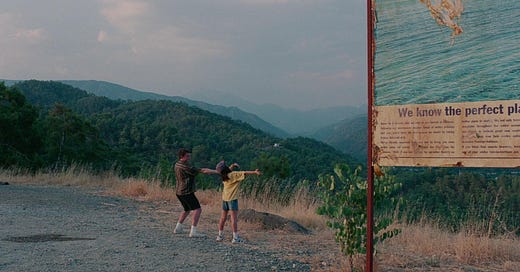


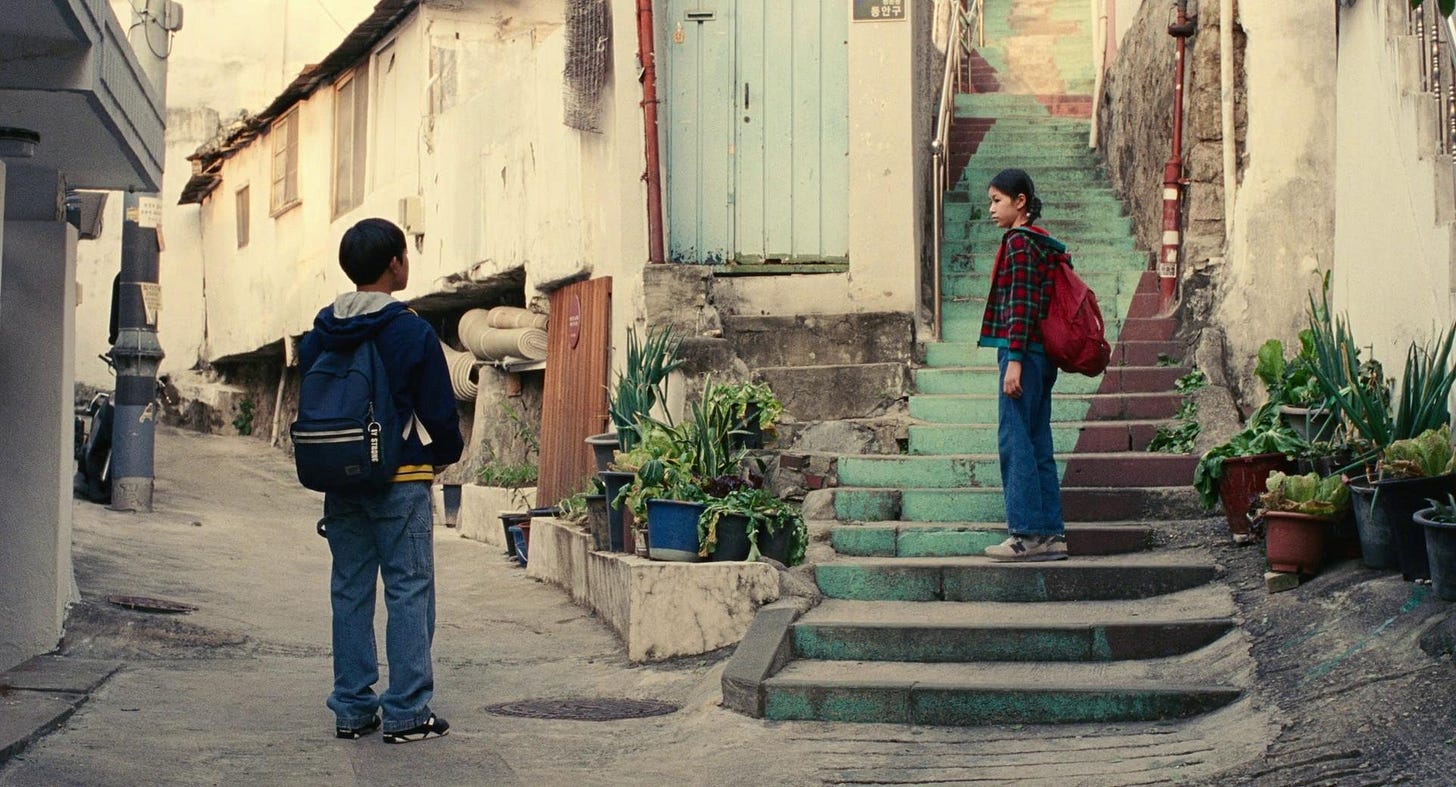

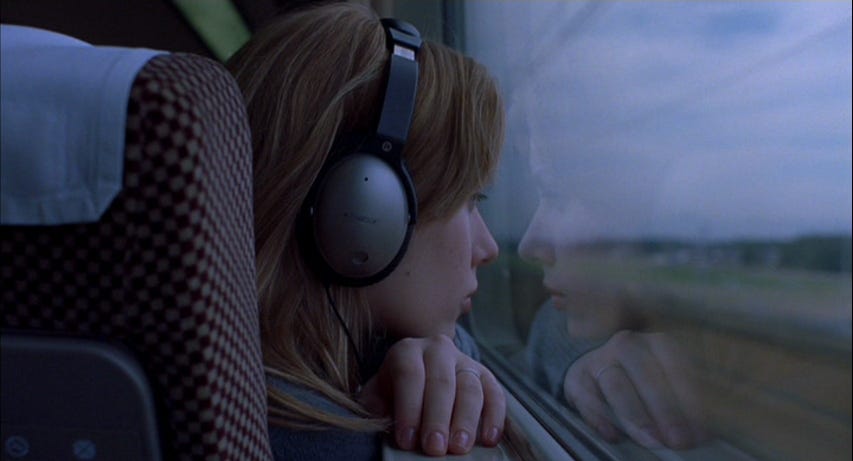
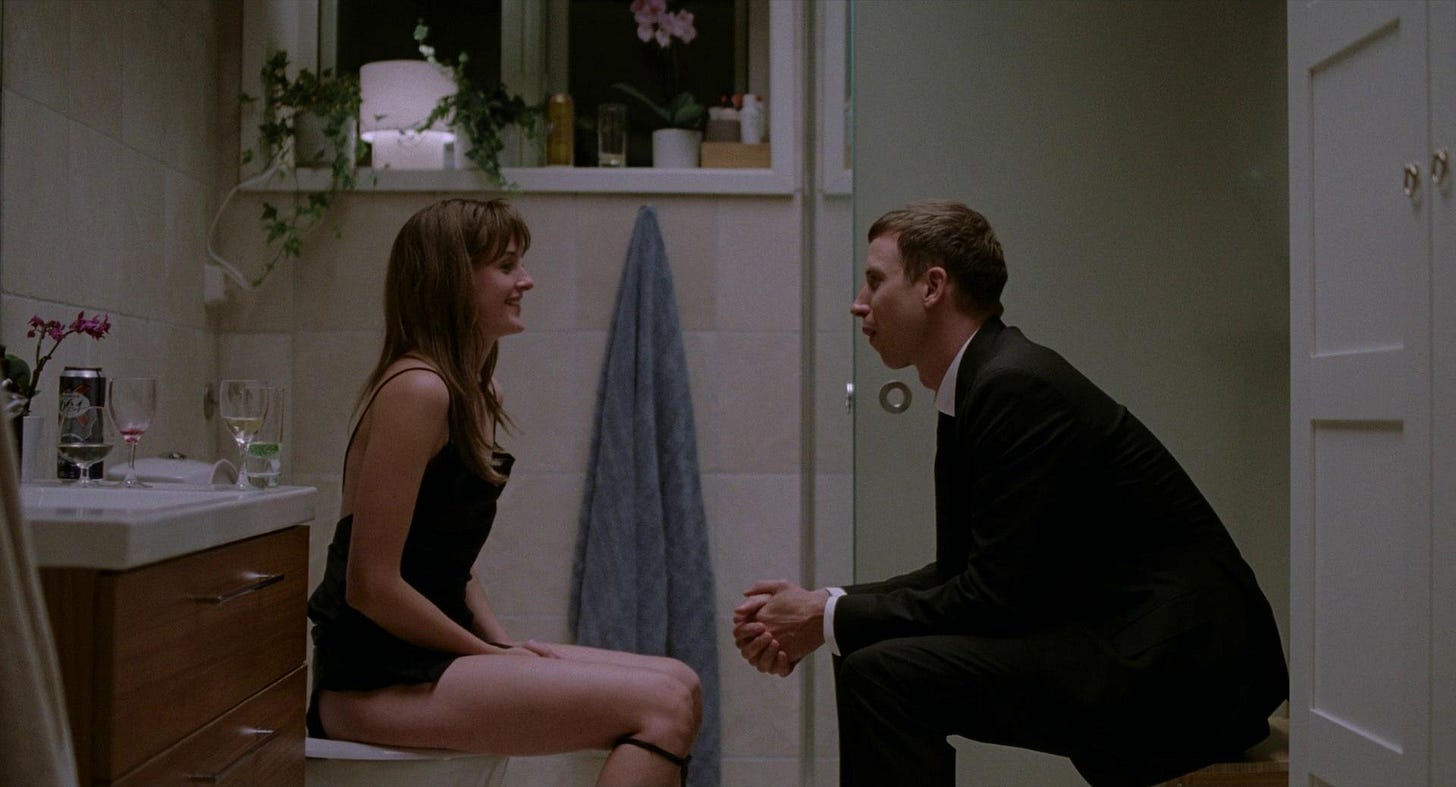
![C'mon C'mon – [FILMGRAB] C'mon C'mon – [FILMGRAB]](https://substackcdn.com/image/fetch/$s_!kLIV!,w_1456,c_limit,f_auto,q_auto:good,fl_progressive:steep/https%3A%2F%2Fsubstack-post-media.s3.amazonaws.com%2Fpublic%2Fimages%2F5b0eb26d-e32a-4201-bc27-3af1a50c5b32_1792x1080.jpeg)

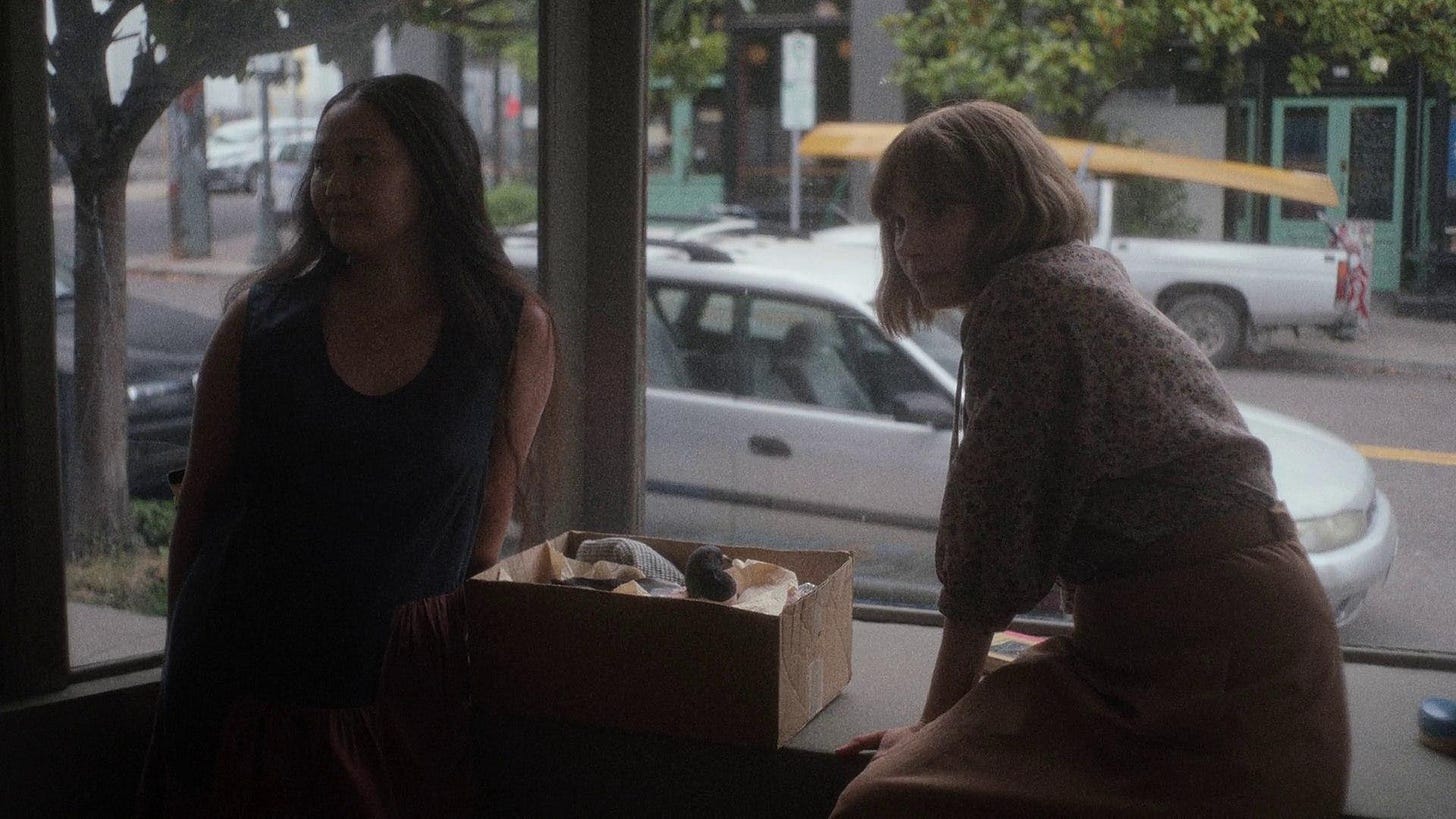
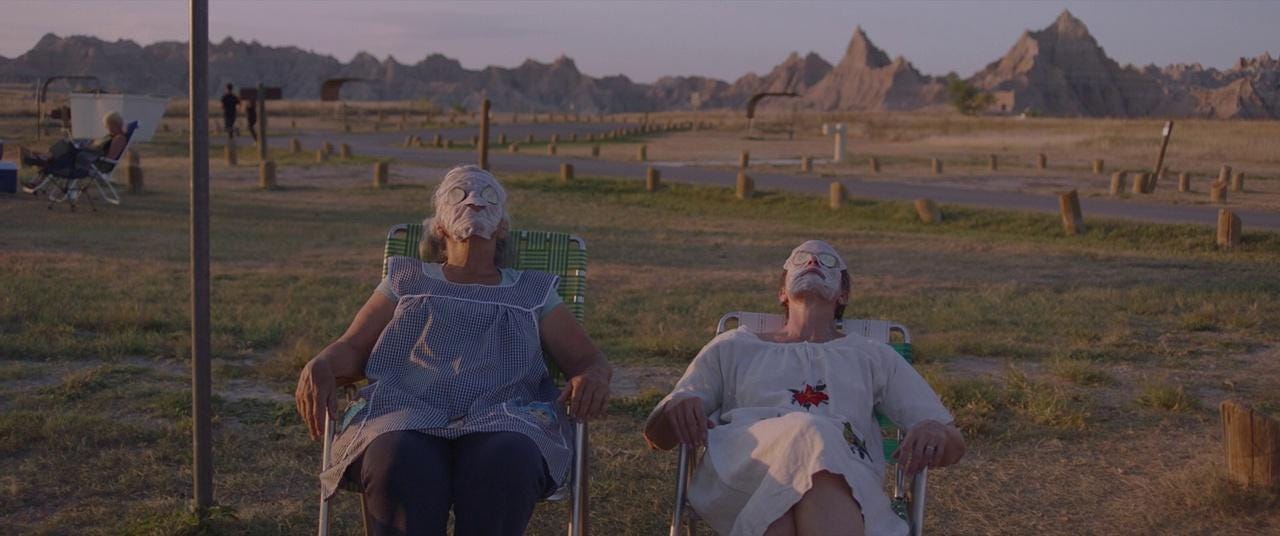
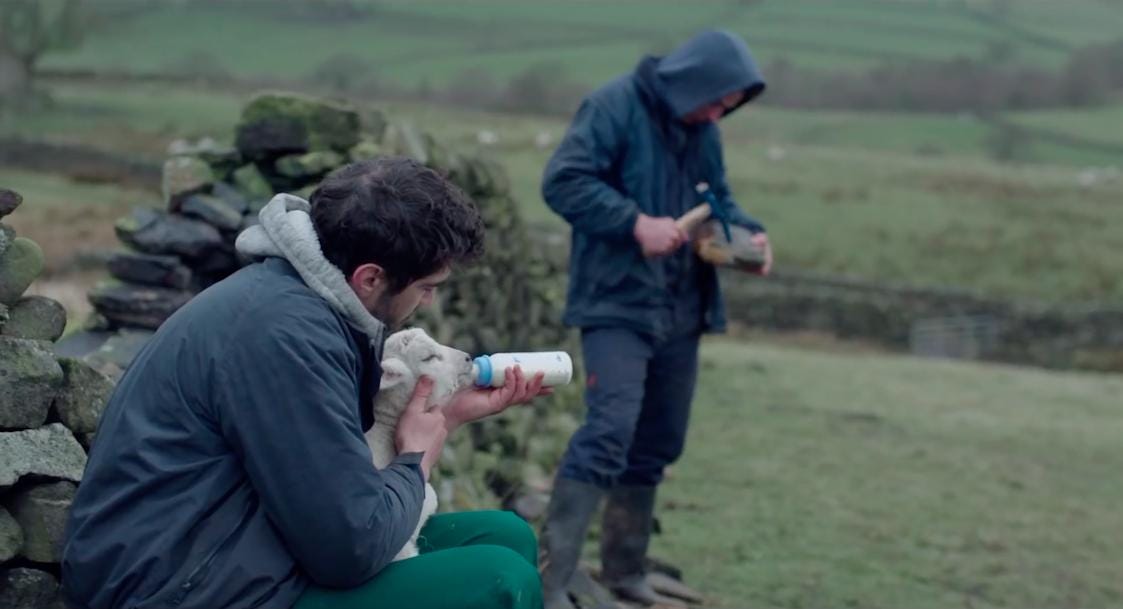
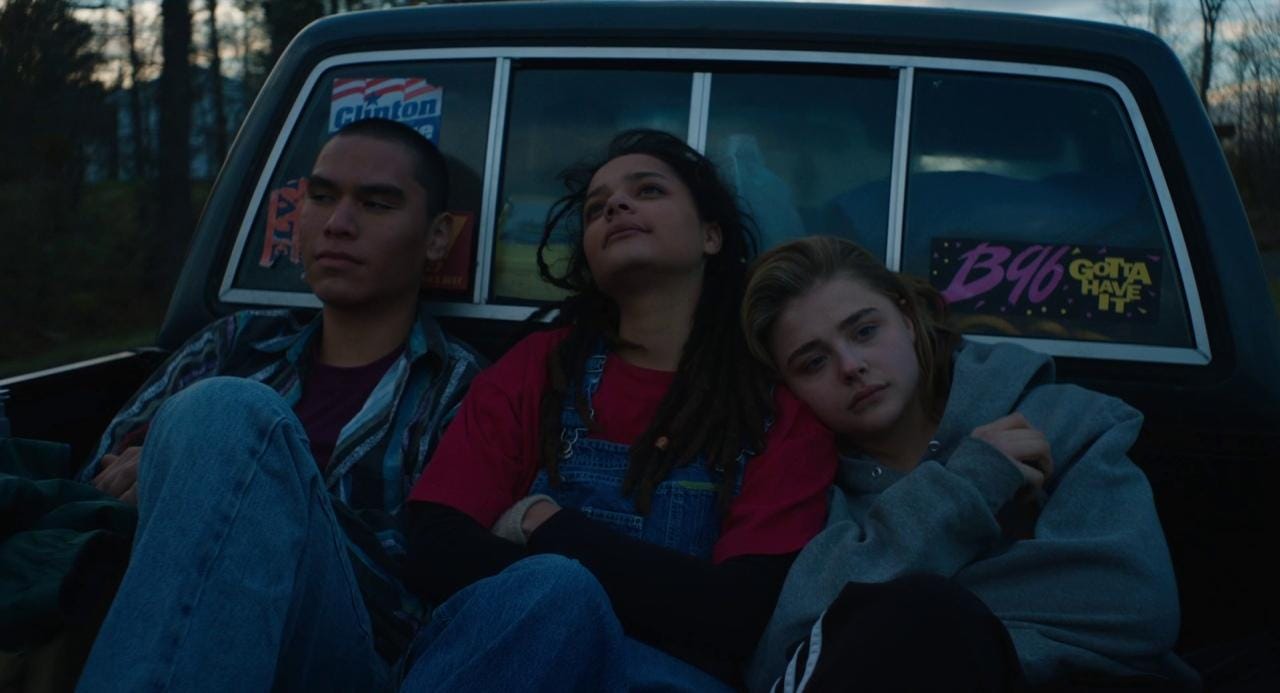
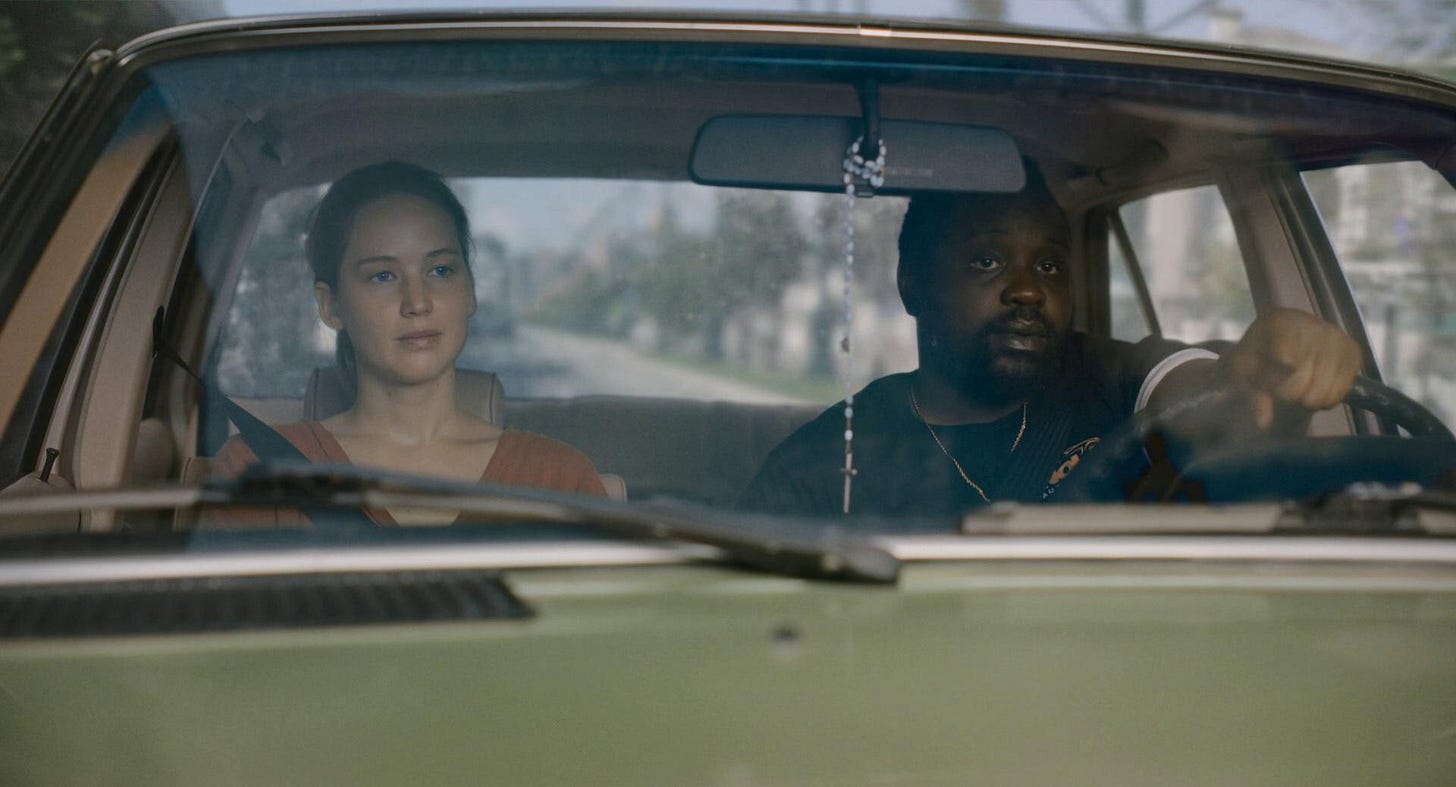




Yessss Frances Ha and Showing Up!!!